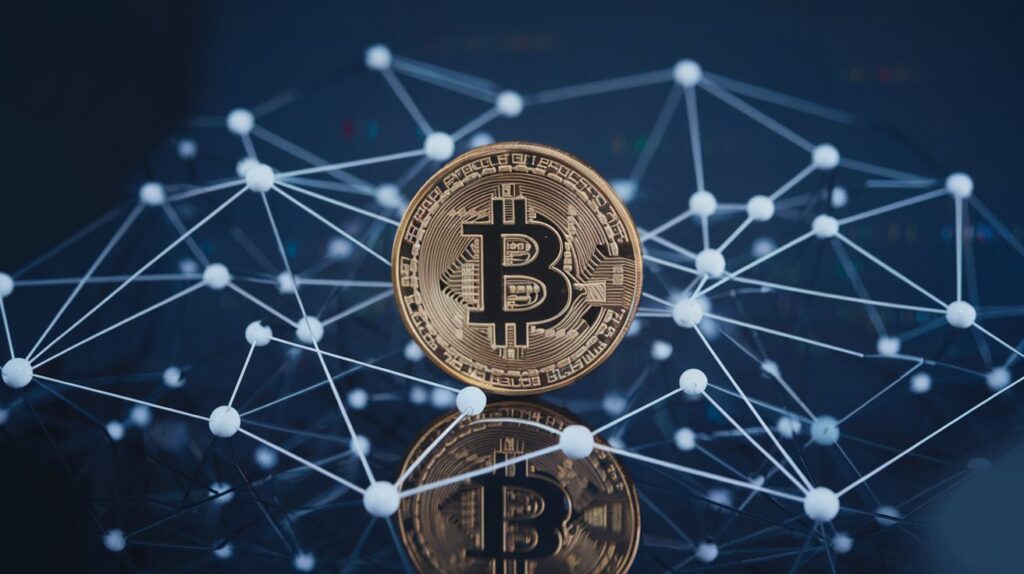Why the U.S. Government Can’t Ban Bitcoin (And What It Means for Investors)
Bitcoin has become a global phenomenon, reshaping the financial landscape and challenging traditional monetary systems. Despite its growing influence, many wonder why the U.S. government hasn’t banned Bitcoin. This article explores the reasons behind this, the implications for investors, and why Bitcoin continues to thrive in the U.S. and beyond.
Table of Contents
Why Can’t the U.S. Government Ban Bitcoin?

- Decentralization is Key
Bitcoin operates on a decentralized network, meaning no single entity controls it. Unlike traditional currencies regulated by central banks, Bitcoin is maintained by a global network of nodes and miners. This decentralization makes it nearly impossible for any government, including the U.S., to shut it down entirely. - First Amendment Protections
Bitcoin is often viewed as a form of free speech. The code behind Bitcoin is considered protected speech under the First Amendment, making it legally challenging for the government to ban it outright. Attempting to do so could lead to significant legal battles. - Economic and Technological Leadership
The U.S. is a global leader in technology and innovation. Banning Bitcoin would stifle innovation in blockchain technology, which has applications far beyond cryptocurrency. Many U.S.-based companies, such as Tesla, MicroStrategy, and Square, have invested heavily in Bitcoin, further integrating it into the economy. - Public and Institutional Adoption
Bitcoin has gained widespread adoption among both individual investors and institutional players. Major financial institutions like Fidelity and JPMorgan have embraced Bitcoin, offering services related to cryptocurrency. A ban would disrupt these investments and erode trust in the U.S. financial system.
What Does This Mean for Investors?
For investors, the U.S. government’s inability to ban Bitcoin is a sign of its resilience and long-term potential. Here’s what it means:
- Bitcoin as a Hedge Against Inflation
With its limited supply of 21 million coins, Bitcoin is often compared to digital gold. Investors see it as a hedge against inflation and currency devaluation, especially during economic uncertainty. - Regulation Instead of Ban
Rather than banning Bitcoin, the U.S. government is more likely to regulate it. Clear regulations could provide legitimacy and stability, attracting more institutional investors. - Volatility Remains a Factor
While Bitcoin’s future looks promising, its price volatility is a concern. Investors should approach it with caution, diversifying their portfolios to mitigate risks.
Here is a comparison chart of Bitcoin vs. traditional assets like gold and stocks:
| Feature | Bitcoin (BTC) | Gold | Stocks (S&P 500) |
|---|---|---|---|
| Nature | Digital asset | Physical commodity | Equity ownership |
| Liquidity | High (24/7 trading) | Moderate (market hours) | High (market hours) |
| Volatility | Very high | Low to moderate | Moderate |
| Supply Limit | 21 million max | Limited (but mined) | No fixed supply |
| Store of Value | Emerging store of value | Traditional safe haven | Growth and dividends |
| Regulation | Varies by country | Regulated globally | Heavily regulated |
| Historical Performance | High growth but volatile | Steady long-term appreciation | Historically strong returns |
| Security | Blockchain encryption | Physical storage risks | Regulatory and market risks |
| Hedge Against Inflation | Potential | Strong | Moderate |
| Market Hours | 24/7 | 24/5 | 9:30 AM – 4:00 PM EST (weekdays) |
Conclusion
Bitcoin’s decentralized nature, legal protections, and widespread adoption make it nearly impossible for the U.S. government to ban it. For investors, this is a sign of its staying power and potential for long-term growth. While regulations may evolve, Bitcoin’s role in the financial system is likely to expand, offering both opportunities and challenges.
By staying informed and understanding the broader implications, investors can make smarter decisions in this dynamic market. Bitcoin is not just a cryptocurrency; it’s a revolution in finance, and its journey is just beginning.